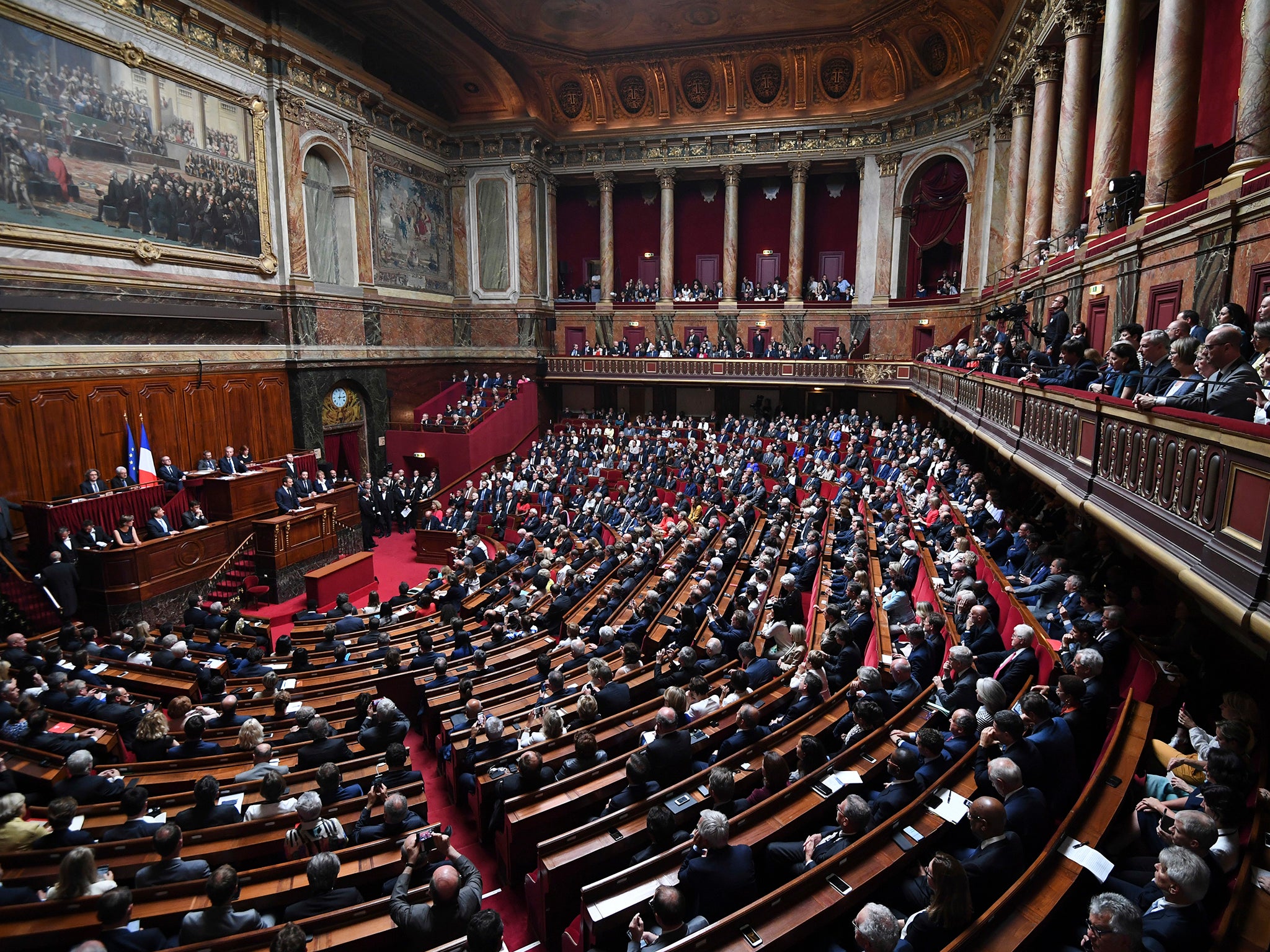Emmanuel Macron sets out vision for France in extraordinary congress in Versailles
Critics have accused the French President of ruling a 'presidential monarchy' – comparing him to Napoleon and Roman god Jupiter

Emmanuel Macron has vowed to lift a state of emergency that has been in place since 2015, but also to harden permanent security measures to fight Islamic extremism and other threats, during an extraordinary joint session of parliament at the chateau of Versailles
Laying out his political, security and diplomatic priorities, the French President said his government "will work to prevent any new attack, and we will work to fight (the assailants) without pity, without regrets, without weakness".
At the same time, he insisted on the need to "guarantee full respect for individual liberties" amid concerns that new measures would hand police too many powers.
Mr Macron vowed to maintain France's military interventions against extremists abroad, especially in Africa's Sahel region and in Iraq and Syria. He also insisted on the importance of maintaining "the path of negotiation, of dialogue" for long-term solutions.
In his bid to strengthen the European Union following Britain's vote to leave, he announced Europe-wide public conferences later this year in an effort to reinvigorate the bloc.
He said he understood why many Europeans see the EU as bureaucratic, distant and uncaring.
"I firmly believe in Europe, but I don't find this scepticism unjustified," he said.
He added that European countries should work more closely to help political refugees while fighting migrant-smuggling and strengthening borders against illegal migration.
Mr Macron has pledged to fulfil his campaign promise to bring about deep changes in France, notably through labour reform and a series of measures to put more transparency and ethics into politics.
He said French voters no longer accept the conflicts of interest and corruption scandals that "used to seem almost normal" in the country's political landscape.
He notably vowed to end the special court, mostly composed of lawmakers, that judges government members for crimes committed while in charge. They will be judged by regular judges, with a procedure to deter politicians from using courts to attack rivals.

Implicitly addressing the French media, he called for an end to "this continuous search for scandal, the permanent violation of the presumption of innocence, the manhunt where sometimes reputations are destroyed".
Mr Macron said he wants to speed up lawmaking to better adapt the process to a rapidly changing society. He proposed that some "simple" bills be voted on in parliament's commissions instead of in plenary sessions.
Mr Macron also wants to reduce the number of seats in parliament – which now stand at 925 – by one third.
He promised to gather both houses of parliament in Versailles every year, to be accountable.
"The reforms and deep changes I have promised will be implemented," he said.
Critics who fear Mr Macron is trying to amass too much power organised protests over Monday's event.
Lawmakers from the far-left party of Jean-Luc Melenchon and communists decided not to attend the speech in protest against what they call a "presidential monarchy".
After his new centrist party dominated parliamentary elections and split the opposition, political rivals are comparing Mr Macron to Napoleon, or the Roman king of the gods, Jupiter.
They are especially angry that he wants to strip worker protections through a decree-like procedure, allowing little parliamentary debate.
Critics have complained about the cost of the Versailles event, and accused Mr Macron of convening it for reasons of self-interest instead of national need. The last such joint parliament session was in the wake of the November 2015 Islamic extremist attacks, the deadliest violence to hit France in half a century.
Mr Macron also appeared to be upstaging his prime minister, who is scheduled to give his first big parliament speech on Tuesday, where he will face his first confidence vote.
Join our commenting forum
Join thought-provoking conversations, follow other Independent readers and see their replies
Comments
Bookmark popover
Removed from bookmarks